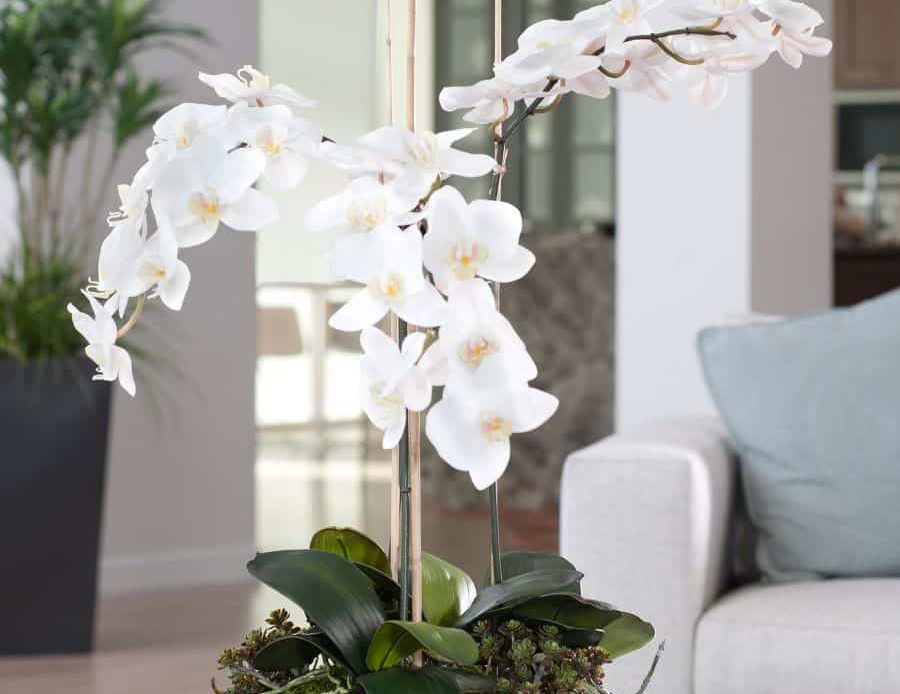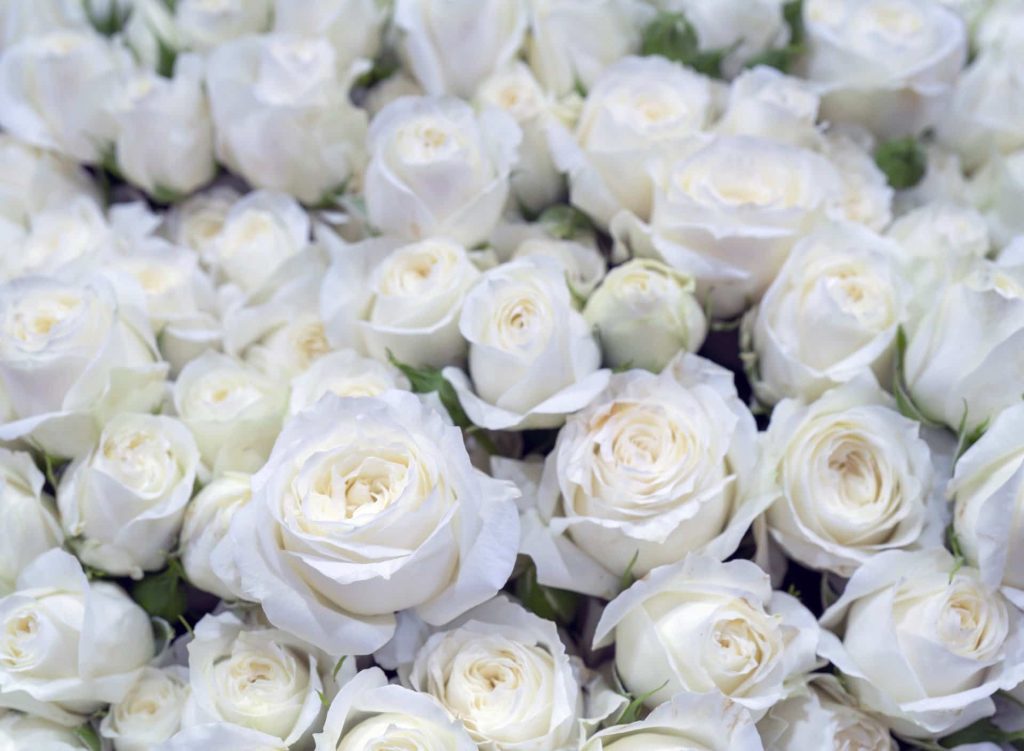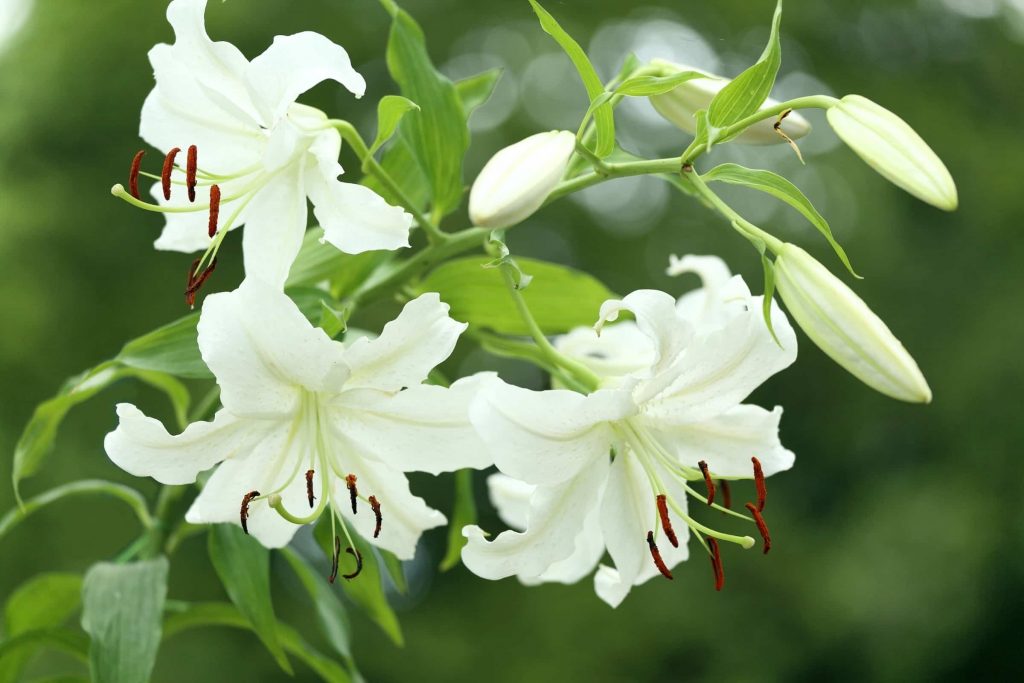
Flowers are one of nature’s most exquisite gifts to humanity. They have the power to express emotions, convey messages, and beautify any environment. Among the many varieties of flowers, white ones stand out for their elegance, purity, and simplicity. White flowers have a meaning that transcends cultures, religions, and traditions. In this essay, we will explore the symbolism, significance, and history of white flowers, and how they can enrich our lives with their beauty and grace.
What do white flowers mean?
White flower meaning is often associated with purity, innocence, and spirituality. Their pristine white petals evoke a sense of untainted beauty and simplicity. Just like a blank canvas, these flowers represent a clean slate, free from any blemishes or impurities.
White flowers are also universally recognized as a symbol of hope, rebirth, and renewal. Their color represents the absence of impurities and acts as a visual representation of the virtuous qualities they embody. These flowers are commonly associated with new beginnings, bringing a sense of hope and renewal.
White flowers have different meanings across cultures and by flower species. Many white flowers symbolize innocence, purity, and cleanliness, while others stand for trust, honesty, fidelity, lasting love, and devotion in the language of flowers. If you want to learn more about the fascinating meaning and symbolism behind white flowers, you can check out the web search results I provided for you. I also created a white flower graphic art for you
Purity
White flowers symbolize purity and cleanliness. They can represent a fresh start, a new beginning, or a clear conscience. White flowers are often used in weddings, baptisms, and religious ceremonies to signify purity and innocence.
Innocence
White flowers also symbolize innocence and naivety. They can express a sense of innocence, simplicity, and honesty. White flowers are often given to children, young people, or anyone who is innocent or pure-hearted.
Sympathy
White flowers can also symbolize sympathy and compassion. They can convey a message of condolence, comfort, and support. White flowers are often used in funerals, memorials, and hospitals to show sympathy and respect for the deceased or the sick.
When is the best time to send white flowers?

White flowers are suitable for many occasions, as they can adapt to different meanings and moods. However, some of the best times to send white flowers are:
- Weddings: White flowers are a classic choice for weddings, as they represent purity, innocence, and elegance. They can create a romantic and graceful atmosphere for the bride and groom. White flowers can also symbolize the unity and harmony of the marriage.
- Funerals: White flowers are also a common choice for funerals, as they represent sympathy, respect, and reverence. They can express sorrow and grief for the loss of a loved one. White flowers can also symbolize hope and peace of the afterlife.
- Birthdays: White flowers can also be a great gift for birthdays, especially for those who are born in winter or have a preference for white. White flowers can symbolize the freshness and beauty of life. They can also wish the recipient a happy and prosperous year ahead.
The most popular types of white flowers
White flowers have a meaning that is often associated with positive and sacred aspects of life. For example, white flowers are commonly used in weddings, as they symbolize love, innocence, and fidelity. White flowers are also seen as a sign of respect, honor, and reverence, especially in funeral ceremonies and memorials. Moreover, white flowers have a meaning that relates to spirituality, faith, and enlightenment. Many religions and cultures regard white flowers as a representation of divine power, purity, and holiness. White flowers can also inspire us to seek inner peace, harmony, and wisdom.
There are many types of white flowers, each with its own unique shape, scent, and meaning. Some of the most popular types of white flowers are:
White rose
The white rose is one of the most elegant and sophisticated white flowers. It symbolizes purity, innocence, and true love. It can also represent loyalty, sincerity, and honor. The white rose is often used in weddings, as it signifies the everlasting love and devotion of the couple.
White lotus
The white lotus is one of the most sacred and spiritual white flowers. It symbolizes purity, enlightenment, and wisdom. It can also represent perfection, grace, and beauty. The white lotus is often used in religious and cultural ceremonies, as it signifies the divine and the transcendent.
White orchid
The white orchid is one of the most exotic and rare white flowers. It symbolizes elegance, sophistication, and rarity. It can also represent innocence, fertility, and charm. The white orchid is often used as a gift, as it signifies admiration, respect, and appreciation.
White lily
The white lily is one of the most fragrant and delicate white flowers. It symbolizes purity, innocence, and sympathy. It can also represent majesty, dignity, and nobility. The white lily is often used in funerals, as it signifies the purity and innocence of the soul of the departed.
White gerbera daisy
The white gerbera daisy is one of the most cheerful and bright white flowers. It symbolizes innocence, happiness, and friendship. It can also represent purity, beauty, and simplicity. The white gerbera daisy is often used in bouquets, as it signifies joy, optimism, and cheerfulness.
Facts about white flowers

White flowers are not only beautiful and meaningful, but also fascinating and intriguing. Here are some facts about white flowers that you may not know:
- The color of white flowers is actually an illusion. They do not have any pigment, but rather reflect all the colors of light, making them appear white to our eyes.
- Nocturnal animals, such as moths and bats, are more attracted to white flowers than daytime ones, such as bees and butterflies. This is because white flowers stand out more and contrast better in the dark than colored flowers.
- Different cultures and traditions have different meanings for white flowers. For instance, in China, white flowers signify death and mourning, while in Japan, white flowers signify purity and reverence. In contrast, in Western cultures, white flowers signify weddings and celebrations, while in Eastern cultures, white flowers signify funerals and condolences.
- A sense of elegance, simplicity, and harmony is created by the artistic value of white flowers. They can also make other colors more beautiful and contrasted, creating a striking and stunning effect. White flowers are often used in art, photography, and design, as they can express sophistication, purity, and grace.
- Positive energy and vibes are brought by white flowers to people and places. They can create a serene and calm atmosphere, as they can lower stress, anxiety, and negativity. White flowers can also spark creativity, clarity, and optimism, as they can activate the mind, imagination, and spirit. The mood, health, and well-being of the inhabitants are improved by having white flowers in the house, as well as the ambiance and aesthetics of the space.

This article beautifully captures the essence of white flowers. Their pristine petals evoke purity, innocence, and spirituality. Whether it’s the delicate lily, the elegant magnolia, or the timeless rose, each white bloom carries a unique message. As I read about their symbolism, I couldn’t help but appreciate the depth and serenity they bring to our lives. Thank you for shedding light on the beauty and meaning of these blossoms!
Hello. We’re thrilled to hear that our article resonated with you and deepened your appreciation for white flowers. Their symbolism of purity, innocence, and spirituality is indeed profound. Whether it’s the lily, magnolia, or rose, each bloom does carry a unique message. We’re glad that our content could shed light on the beauty and meaning of these blossoms.